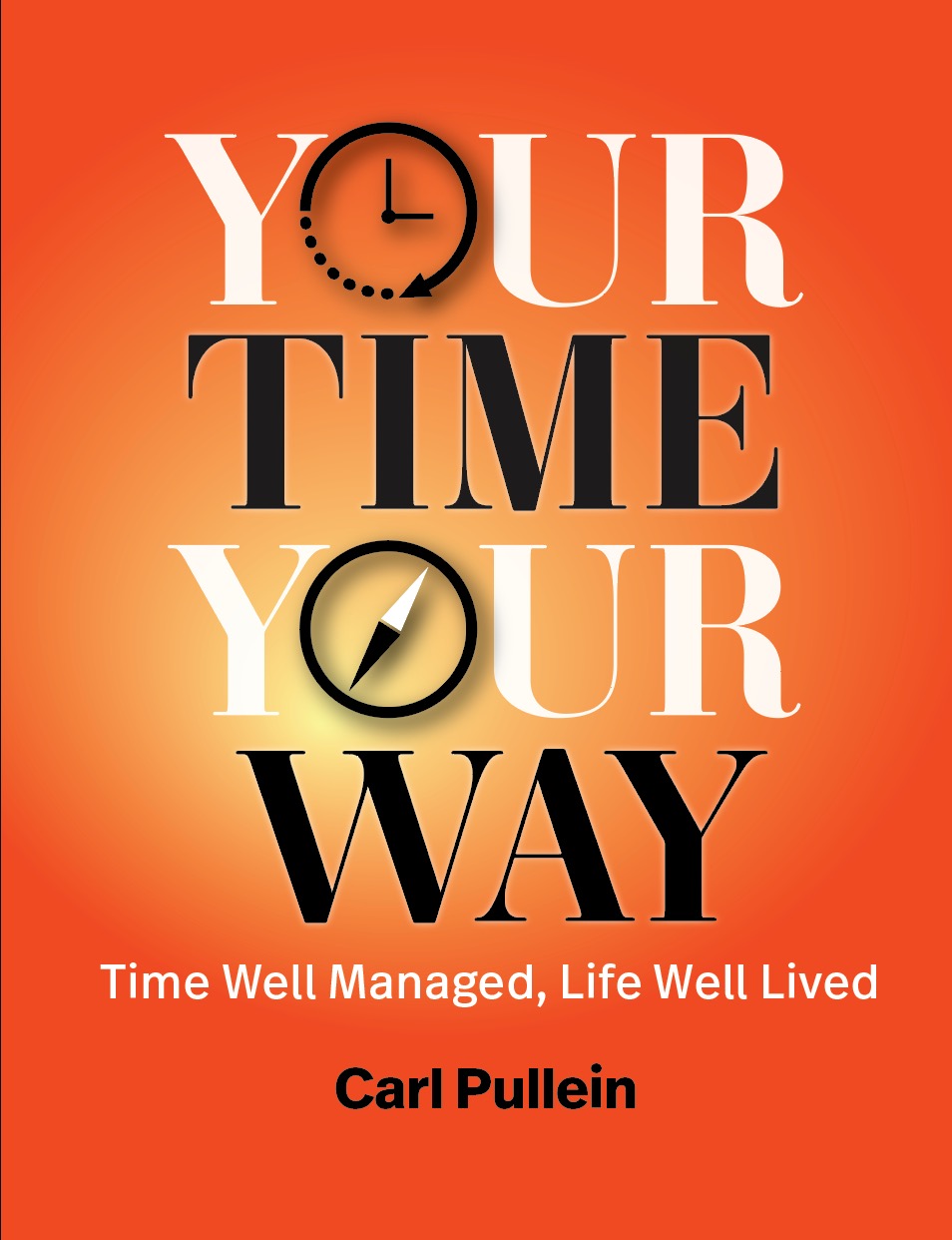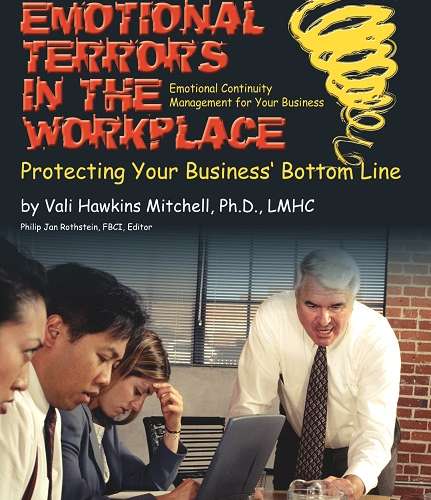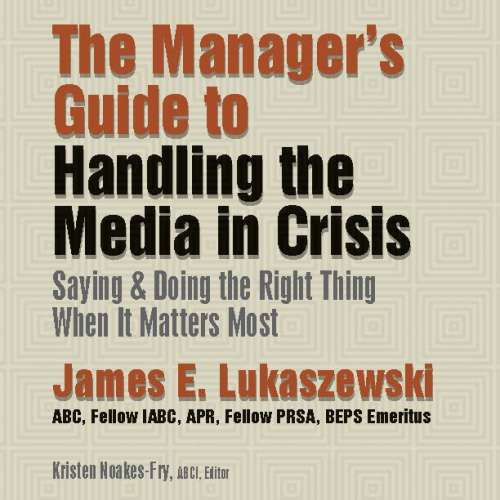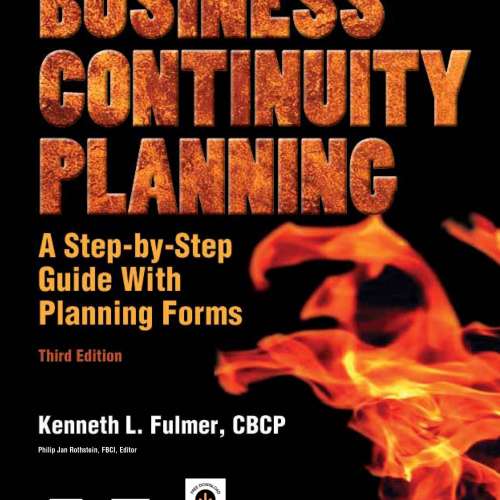Description
YOUR TIME, YOUR WAY:
Time Well Managed, Life Well Lived
by Carl Pullein
Is It Actually Possible to Do More in Less Time?
Discover How to Make the System Work for You – Not the Other Way Around
It’s Tuesday morning, you’re stuck in traffic, battling against the clock, and there’s so much to do. Often enough, we work long hours, then get off to run errands, and yet, at the end of the day, it feels like we’ve accomplished nothing. But what if there’s a way not just to do more but do what truly matters?

Introducing Your Time, Your Way: Time Well Managed, Life Well Lived, by Carl Pullein
A revolutionary approach to redefining your relationship with time: in a fast-paced world, time is your true currency.
Written by author, coach, and #1 Time Management Guru Carl Pullein, this productivity handbook presents an innovative, meticulously crafted time management system that works for you.
Carl introduces the “Time Sector System,” an incredibly user-friendly system designed to help you master the art of time management. Carl, a true time tamer with a career spanning 20+ years, has helped not just individuals but global brands like KIA utilize their time efficiently and effectively. And now he’s here to help you.
By reading Your Time, Your Way, you will learn how to:
- Prioritize tasks by importance, not urgency. Focus on what truly matters to you.
- Avoid common pitfalls. Another calendar app won’t save your schedule. Plan your day in a way that feels organic, not overwhelming.
- Master the art of time management. Turn your intentions into actions and spend more time doing the things you love doing.
- Implement the Time Sector System: a fresh method to divide your tasks into areas of focus and to structure your goals in a way that is easy to maintain.
In his new book, Carl has delved into the old to come up with the new. Your Time, Your Way simplifies the complexity of our modern world with advice that feels fresh, current, and applicable. Drawing from real-life examples, it has the power to help you start living your best life today.
But I’ve already tried every productivity system out there…
Your Time, Your Way doesn’t simply provide just another way to cross things off your list. It substantially urges you to reframe your point of view. You are the master of your time, not the prey of your tasks. Whether you’re a busy executive, a stay-at-home parent, or a college student, Your Time, Your Way provides all the necessary tools for a more organized, fulfilled, and balanced life.
Print – ISBN: 978-1-944480-08-13 (Softcover)
Print – ISBN: 978-1-944480-08-06 (Hardcover)
EPUB – 978-1-944480-08-37
WEB PDF – 978-1-944480-08-20
AUDIO BOOK – 978-1-944480-08-44 [Coming Soon!]
CONTENTS
WHAT PEOPLE LIKE YOU ARE SAYING ABOUT YOUR TIME, YOUR WAY iii
DEDICATION vi
ACKNOWLEDGMENTS vi
CONTENTS vii
FOREWORD BY ED WHITMORE 1
Introduction 5
1 Task Centered Time Management Does Not Work 11
2 Laying The Foundations 17
Your Foundations are the Things in Your Life That are Important to You 18
3 The Eight Areas of Life We All Have In Common 19
Family and Relationships 22
Career/Business 22
Finances 23
Health and Fitness 24
Spirituality 27
Lifestyle and Life Experiences 28
Personal Development 28
Purpose in Life 29
Turning Areas Into Tasks. 32
Projects and Goals Will Always Start At An Area of Focus Level 34
4 The Tools You Will Need 39
Paper or Digital? 39
A Calendar 40
A Notes Application 41
A Task Manager 42
Cloud Storage 44
What To Think About When Selecting Your Tools 45
5 The Basics Of A Productivity System: Collect, Organize, and Do (COD) 49
Collect 50
Primary Collection Tool 50
Organize 51
Do 53
6 Setting Up The Time Sectors 57
The Setup 59
This Month and Next Month 62
Long-Term and On Hold 62
What Are Routines? 62
Recurring Areas of Focus 63
Setting Up Your Notes 64
The Notes Folders Explained 67
Goals 68
Areas of Focus 68
Projects 68
Reference 70
Archive 70
When do you transfer tasks to your task manager? 72
The Entrepreneurial Mind 72
The Anchor Note 73
Setting Up Your Calendar 74
What is Time Blocking? 78
Renegotiating Your Commitments 80
Your Task Manager 81
Your Notes App 81
Your Calendar 82
7 What Are You Employed To Do? 83
Your Core Work 83
Make Use of Your Calendar 88
Leaders and Core Work 88
Business Owners And Core Work 90
Homework 92
8 Why Set Goals? 93
The Problem With SMART Goals 95
If SMART Goals Don’t Work For An Individual, What Does Work? 96
Envy is a Really Good Motivator 97
Building Discipline (And You’re Going To Need It) 100
How Does This Work in the Time Sector System? 102
9 Using The Time Sectors 105
How to Write Your Tasks 106
Think About and Decide on Tasks (Covert Procrastination Warning!) 107
Look For Natural Triggers First 109
Recurring Areas Of Focus 109
Your Time Sector Folders 111
Random Tasks 112
Long-Term and On Hold 112
Processes vs. Projects 114
Give Your Processes Time To Work 120
Checklists 121
You Don’t Have To Do Everything Today 122
10 Planning Your Day 125
The 2+8 Prioritization Method 127
The Ivy Lee Method 129
It’s Not About Doing More 131
Prioritizing Your Day 132
Prioritization Starts at the Bottom 136
Why Understanding Your Core Work is Important 137
What Do You Do About a Long, Overwhelming List? 139
11 The Weekly Planning Session 141
Key Questions to Ask Yourself 145
What About Tasks You Did Not Complete? 146
Your Optimal Weekly Task Number 146
Your Weekly Planning Session Environment 147
The Weekly Planning Matrix 147
Extraordinary Planning Sessions 150
An Important Warning 151
12 Using Time Sectors Every Day 155
Let’s Look at How a “Typical” Day Might Go 155
What About Email? 159
Random Tasks 160
The Daily and Weekly Planning Connection 160
13 Common Pitfalls 163
Not Collecting Everything 163
Not Trusting Your System 164
Confusing Apps for Systems 165
Tips For Choosing Apps 166
Don’t Skip the Planning Sessions 167
Putting Too Much Into Your Task Manager 167
Continually Fiddling and Tweaking 168
Mishandling “Waiting For” / “Follow-up” Tasks 168
Putting Everything Into Your This Week Folder 169
Not Finishing Personal Projects 170
Where’s the Antagonist? 171
The Pernicious Procrastination Cycle 172
14 How to Get Focused Each Day 175
How To Start Your Day Motivated and Energized 177
Lessons From Two Prolific Figures 179
15 Managing Email and Messages 183
Setting Expectations 191
Clear Your Email First Thing 194
16 The Four Levels Of Your Personal Productivity 197
Level Zero 198
The Beginner 198
The Intermediate 198
The Enlightened Ones 200
17 The Real “Secret” To Getting Things Done 203
Now, How To Do Less 205
INDEX 209
CREDITS 214
ABOUT ROTHSTEIN PUBLISHING 214
ABOUT THE AUTHOR 216
ABOUT THE AUTHOR
Carl Pullein is not just another time management “expert;” he is the visionary behind the groundbreaking Time Sector System™ and the COD™ task management system, meticulously crafted for the demands of the 21st century.
He was voted the #1 of the world’s 30 top time management professionals for 2024 by GlobalGurus.com.
What Carl Does
With a global reach, Carl helps organizations and individuals worldwide master time management and boost productivity.
Carl’s Mission
Carl is committed to equipping people with the tools needed to take control of their time and concentrate on their priorities. His content, including YouTube videos, presentations, and immersive workshops, offers a unique blend of interactivity, entertainment, and education.
Carl is passionate about nurturing and guiding individuals on their journeys; he is incredibly fortunate to have embarked on this fulfilling career in none other than South Korea – an electrifying and captivating country that brims with exceptional talent and is home to some of the world’s most prestigious companies.
His academic journey began with a Bachelor’s Honours Degree in Law from Leeds Metropolitan University in the UK, which gave him a solid foundation to pursue various roles. Beyond academia, he proudly serves as an advisor to the Sunfull Movement, an organization dedicated to stamping out online bullying, a cause that resonates deeply with him.
His passion for mentorship extends to the airwaves as well. You’ll occasionally find him lending his coaching insights and help on the 1013 Main Street Radio show for TBS eFM in Korea, where he helps guide university students on the path to securing their dream jobs. It’s a privilege for Carl to be part of their journey toward success.
When he’s not immersed in the world of mentorship, training, and coaching, you can catch him cheering on the Leeds Rhinos Rugby League team.
Carl enjoys motor racing, especially Formula 1 and the World Rally Championship (WRC). He also likes hitting the pavement as a dedicated runner, participating in marathons not only across Korea but also in far-flung corners of the globe.
His love for adventure extends to the great outdoors as well, exploring the Korean mountains with his wife and his faithful canine companion, Louis. He also enjoys Trance music, and the many exhilarating EDM festivals in Korea.
WHAT PEOPLE LIKE YOU ARE SAYING ABOUT YOUR TIME, YOUR WAY
“Life can often become overwhelming with the multitude of issues demanding immediate attention. This can lead to missed deadlines and, most importantly, compromised family time as I scramble to catch up with work. TSS has been a game-changer for me, helping me remain focused on what truly matters in both my home and work life. TSS has truly made a positive impact on my productivity and overall well-being. I wholeheartedly recommend it to anyone seeking a comprehensive approach to managing their time and achieving a healthy work-life balance.” – Jeff Jackson
“It’s been challenging to focus on what’s important when much of my time is committed to 40+ hours/week at work and the routines of maintaining a house, domestic chores, and time with my spouse. When I blocked out time on my dream calendar for my areas of focus and desired core work and compared it to my actual calendar including my regular job and routines, it was an eye opener.
I am successfully using the Time Sector System at work. I complete my daily planning every day and weekly plan at the end of the work week. I appreciate the simplicity of the Time Sector System. Planning for the upcoming week IS all that you need to focus on.” – Jana Palermo
“I am not a high-powered executive climbing the corporate ladder. I am a full-time working mom and I manage the care for my mother, who is in an assisted living facility. For the last couple of years, things have gotten more complicated. The stress kept building and I became overwhelmed. When I started missing appointments and deadlines, I realized that I had to act.
I tried the GTD system, but it wasn’t sustainable for me. I was spending a lot of time organizing. After all that organization, I often couldn’t find the information I needed.
Your idea of organizing by time was brilliantly simple. That’s what I need, a simple system that works. I’ve only been using the time sector system for a few weeks, but I am already noticing the benefits. It is funny how a system can change the way you think. By putting tasks into buckets based on when I need to get them done, I am significantly better at prioritizing.” – Ann Ramey, Hawaii
“Your vision of the Time Sector System has been helping me for 3 years. My aim is not necessarily to be more productive, but above all to be better organized so as to do things better. The results are there. I’m more efficient and less stressed!” – Guigueek
“I have multiple projects, clients, and tasks … at any one time. Working fully from home, motivation is a big issue, and I found it easy to get distracted and drift off course. I’d spent 18 months(!) trying different productivity tools to no avail – time blocking, to-do lists, daily planning, Trello, etc. – and without a coherent system or process, they didn’t work for me.
The Time Sector System… changed my relationship with time. I’d previously put tasks into ‘buckets’ by project or by client, rather than when they needed to be done, which made managing my diary across all my workstreams confusing and rather disorganized. Moving to a system with ‘this week,’ ‘coming up,’ and ‘future’ – planning for when things need to be done, regardless of what they are – has helped me to be more focused, to plan my diary better, and feel more in control. I can’t imagine working without the system and will be using it for a long time to come!” – Tracey Warren BSc (Hons) FMAAT
“‘It doesn’t matter how long your to-do list is, if you don’t have enough time to do the tasks.’ This quote truly resonated with me. I often found myself feeling totally overwhelmed and defeated by my endless to-do lists. The Time Sector System taught me a very effective method to simplify what is important now and how to stay focused on those critical tasks without feeling overwhelmed or depressed with other tasks that must wait. The method reduces distraction and overwhelm. It’s a unique approach that is simply brilliant.
The Time Sector System is a life raft that taught me to efficiently navigate through my tasks. I’ve been using the system for 6 months, and it truly is a lifesaver. The simplicity of this system can work for anyone!” – Michelle Philips
“The Time Sector System has been the pivotal ingredient for my success in all areas of my life. TSS can’t be mentioned without a few of your other teachings: COD, 2+8 prioritization (I do 3+7 but the principal is the same), as well as daily and weekly reviews. TSS is the culmination of all these systems that have allowed me to pay off debt, get married, go on multiple vacations, adopt my wife’s daughter, do countless home renovations, and build an office addition, all while running a transportation business with 30 employees. TSS helped me when COVID shut down my business for 9 months, it has helped my business become debt-free, and it has helped me grow revenues by 40% in 5 years.
A lot of work was required on my part, but TSS helped me stay focused and on task. Before TSS I never knew what success for that day looked like. I was always feeling that I was missing something, even if I knew I had added it to my task manager. TSS has allowed me to say “these tasks are important This Week” without actually making up an artificial date. TSS has allowed me to sleep easier at night knowing that what is important for This Week is readily available and only a click away: grab a few tasks after looking at my calendar and know what success for that day looks like.” – Brian Walsh
EXCERPT FROM THE FOREWORD BY ED WHITMORE
I am a busy screenwriter forever trying to keep the encroaching fire of multiple deadlines at bay. About three years ago that fire wasn’t so much encroaching as burning down the house and I knew something had to give. I was lurching from one missed deadline to another and locked in a cycle of working seven-day weeks, grudgingly foregoing family time and generally feeling one step behind, sometimes ten steps.
My stressful predicament ultimately sent me on a deep dive into the burgeoning world of productivity and time management media. Nothing really stuck until I stumbled on one of Carl Pullein’s winningly clear and actionable videos on how to get the most out of ToDoist, which swiftly led me to his range of online courses.
It is not an understatement to say that enrolling in Carl’s brilliant Time Sector System course proved to be a life-changing decision. But that change did not happen overnight. Two of the attributes that mark Carl out from an ocean of over-promising, under-delivering productivity gurus are his honesty and realism – he doesn’t pretend there are quick fixes or that the road from disorganized to organized is short and hurdle-free.
Instead, Carl encourages you to build a productivity system that follows certain core principles and structures but that – ultimately, crucially – can be fine-tuned to meet your own specific needs.
Once I’d got to grips with the Time Sector System, I felt liberated and focused like never before. Just by sticking to a few good habits –- capturing every new task rather than deluding myself, and taking five minutes to plan the following day, to name but two – I suddenly felt ahead of the game and not behind! Instead of being burdened by a mile-long to-do list I had a system that kept me focused on my major projects, while miraculously allowing time for the myriad smaller tasks and unforeseen things that “just come up.”
“If it ain’t broke, don’t fix it,” as the saying goes, and three years on, while I occasionally tweak a label here, a task heading there, my use of Carl’s system remains remarkably unchanged. And, tellingly, I have not been tempted to suspend or even pause its daily implementation.
The reason for this goes to the heart of Carl’s productivity ethos. Basically it’s incredibly user-friendly and easy to maintain, qualities that derive from the underlying principle that the system should work for you, not the other way around. So many productivity systems are unrealistically complicated, time-consuming, and ultimately unsustainable. In contrast, Carl offers an approach that is lean, flexible, intuitive, and fleet-footed, reflecting a refreshingly simple premise: when all’s said and done, only two questions truly matter: what is the task, and when are you going to do it?
As a TV scriptwriter and executive producer I often used to find myself caught on the horns of a dilemma – namely, my days were filled with essential meetings and calls but if I didn’t put in serious writing time I’d be shortchanging the most important part of my job. The proverbial circle that couldn’t be squared. The only solution seemed to be burning the midnight oil or, more often than not, the 4 a.m. oil…
No longer. In Your Time, Your Way Carl delivers both the tools and the methodology to truly take charge of your diary, your time and, ultimately, your life. Speaking personally, implementing these ideas and strategies has been a game-changer for me. Liberated by a system that optimizes the time/work balance so effectively, I now always know where I’m supposed to be and what I’m supposed to be doing. And the concomitant savings in terms of time and energy have been as astonishing as they are welcome. Now, rather than merely hoping to spend more time with my family or taking exercise, those aspirations have become firm and regular fixtures.
Your Time, Your Way is a brilliantly comprehensive, all-in-one-place summation of Carl’s productivity ethos that’s practical, inspiring, and definitive. But its scope extends far beyond the workplace to encompass our life goals, spiritual needs, general happiness, and wellbeing. With his infectious blend of enthusiasm and pragmatism, Carl outlines clear, actionable steps that will turn seemingly unreachable ambitions into concrete realities. He urges us to think deeply about what’s truly important to us and to focus and prioritize our precious time accordingly. As such, Your Time, Your Way transcends being just another time management book – it is nothing less than a guide to living your best life: happy, balanced, ordered, and – of course – productive.
Ed Whitmore
May, 2024
Ed Whitmore is a British screenwriter. He has written for a number of successful British TV series such as Waking the Dead and Silent Witness. In 2022, he was nominated for a BAFTA for his work on the second season of ITV true crime drama Manhunt.
EXCERPT FROM THE INTRODUCTION
My time management and productivity obsession began nearly thirty years ago. I vividly remember painstakingly drawing out exam revision timetables with a pencil and ruler when my middle and high school exams approached. I would use different colored pens for each subject and create beautiful timetables with built-in break periods and days off.
I loved it! I was great at creating the timetable; just terrible at doing revision and exams.
My love of productivity and time management comes from competitive athletics. As a teenager, I was encouraged to run by an inspiring teacher, Mr. Farrow. He encouraged me to take up cross-country running, and this was the first time I found myself good at anything. I was not a model pupil and languished in the bottom sets in all the key subjects: mathematics, English, and science. But when I took up cross-country running, I found myself at the head of the pack. It seemed I was a natural!
My coaches gave me training programs, and all I had to do was to follow the schedule. Those schedules taught me how to manage my time. I went to school, and then after school, I ran. Sometimes at the running club, other times on my own. Then I came home and did my homework. I quickly learned that the key to success at running (and academic studies) was consistently following a plan and applying a little persistence.
The training schedules and the routines I learned about as a teenage athlete became revision timetables and schedules in my schoolwork. This, resulted in my grades rising. I never quite made it to the “A” sets, but I no longer languished in the bottom “D” sets.
All the pieces were falling into place. I was learning about structure, routine, persistence, and, most importantly, knowing what I wanted.
Not long after joining the workforce when I began my first day as a new car sales executive, I was introduced to my sales manager, David Cox. As I was ushered into David’s office, I noticed an open A5 desk diary in the center of his desk that showed an entire week across two pages. To complement this diary, a pile of papers was neatly fanned out in perfect alignment on the right-hand side of David’s desk.
It struck me that this was an organized person. Yet, I had no evidence of this except for how clean and organized David’s desk was. Everything seemed organized around his A5 diary; it was the centerpiece of his desk.
Thirty years later, I spoke with David about this, and he mentioned that his diary is still his number one organization tool. He now uses a digital calendar, but the way he uses it is the same way he used that A5 desk diary all those years ago.
If you think about it and want to know where you need to be, when, and with whom, your calendar is the perfect tool.
You may have heard of something called the Bullet Journal. The Bullet Journal is a paper-based system where you take a plain notebook and design your own way of managing your tasks and appointments. The centerpiece of the journal is – you guessed it – your diary, which you draw out yourself. You can create boxes, lines, or any way to show your daily appointments and commitments. If you are artistic and want to practice your artistic skills, the Bullet Journal is a beautiful way to do it!
David’s boss, our general manager, was Andrew Donovan. When I was introduced to Andrew, in his office was… wait for it… a gorgeous A4 black leather diary taking center stage on his desk and a perfectly lined set of papers on the right-hand side. Andrew also had an expensive-looking blue Waterman ball pen neatly placed on the open desk diary. (He was the big boss, after all).
It was an almost perfect copy of what I had seen on David’s desk earlier, save for being larger and a little more expensive in appearance.
What was it about these two gentlemen that gave the impression they were organized and on top of their work? Part of what led me to believe that was the cleanliness of their desks. It was a first impression, but seeing their open diaries with their appointments neatly written in gave me a sense of focused organization.
While you may not use a paper-based planner today, the principles used back then are the same principles today. If you want to be on top of your work and know how much time you have, you’d better ensure your stuff is organized.
Over the months, the more I learned about Andrew’s working style, the more inspired I became. Andrew was the most organized person I had met. Whenever Andrew held a management meeting, he would carry a spiral reporter’s notebook; when he asked someone to do something, he would write it down in that notebook. You knew Andrew would never forget to follow up with you, and his management team always succeeded in getting things done.
The experience of working with Andrew and David set me on a course of having a well-organized diary. Andrew’s impeccable yet simple time management system inspired others. It inspired David, and it certainly inspired me.
I remember discovering where Andrew bought his desk diary and traveling over the Pennines in the north of England (around a two-hour drive) to purchase one. Looking back today, I see it was one of the best purchases I ever made because it began my journey of using tools to manage my life.
Before buying that diary, I, like most people, tried to remember everything in my head. It’s the worst time management system ever invented! As David Allen, author of Getting Things Done, says, “Your head is a crappy office.” You may have noticed that your brain does not understand time; it only knows something has to be done and will remind you about it at the worst possible time. For example, I’m sure you’ve been reminded to turn off a light or lock your back door when in your car halfway between work and home. It never reminds you as you leave your home.
I’ve gone through all sorts of different time management and organization systems, from my first Filofax in the late eighties to the Franklin Planner in the early nineties and finally going all in on digital planning when I got my first iPhone in 2009.
The basic principles of time management haven’t changed. Benjamin Franklin, one of the Founding Fathers, kept a simple diary/journal listing how he would organize his day. There was time for dining, resting, reading/self-education, sleeping, and work. Throughout history, the most creative and productive people have succeeded because they took control of their time. They knew what they wanted and carved out time each day to create. It didn’t happen by accident.
Over the last twenty years, there appears to have been a shift away from this wisdom of first establishing what is important to you and building your days and weeks on that foundation. Today, it’s all about managing projects, tasks, and appointments. What we value and want to spend time on has sunk to the bottom of the task-list pit.
What teachers like Hyrum Smith, Stephen Covey, Jim Rohn, and Earl Nightingale taught us has mostly been replaced by app developers who want to sell you the latest, shiniest tool to get you hooked on organizing and moving stuff around.
Instead of establishing your governing values and the principles of first-things-first (i.e. you, your family, your dreams, your aspirations), you are seduced into tools that stop you from thinking about what you want and instead focus you on task completion. That doesn’t get meaningful work done! That causes the very thing you are trying to avoid – overwhelm, stress, anxiety, and, ultimately, breakdown.
I began to think, what kind of time management system would work in a world with ever-increasing input from email and message services such as What’s App, Teams, and Slack, where deadlines were no longer months but often weeks or days away? There had to be a better way!
This led to the development of the principles around the COD productivity system. COD stands for Collect, Organize, and Do, and every sound productivity system has this at its core; it’s nothing new. You need to collect all the inputs you receive in a trusted place – a digital inbox in your notes app, a task manager, or a simple notebook. No matter what tool you use to collect all these commitments, events, and ideas, you need to trust that you will collect everything there.
Then you set aside some time to organize everything you collected. Where will you put it so you will not forget it? For that, we have task managers, notes apps, and calendars.
And finally, you need to be doing the work. Nothing else matters if you have an excellent collection system and everything is beautifully organized, but you aren’t doing the work, you are procrastinating. All systems require you to be doing the work.
Many pour scorn on the prioritization method of older time management systems. The argument is that no matter how essential you decide something is, if you don’t have the tool or are in the right place or with the right person, no amount of urgency will help you to complete that task unless you pick up the right tool, move to the right place or person. And that is perfectly true.
However, we live in the twenty-first century, and most of these productivity systems were developed in the 1980s and 1990s. Technology has moved on a lot since then. In 1997, you had to be in your workplace with your work computer to reply to your work email. Very few companies provided their employees with laptops, and the dawn of the smartphone, as we know it today, was a decade away. We also worked mainly with paper files and large filing cabinets. It was a different world thirty years ago!
Today, your smartphone has more power than even the most powerful office computer from the mid-1990s. You can respond to your emails, write reports, and update spreadsheets. You can even design a presentation, all from that little device in your pocket.
Communications are very different today, too. With Microsoft Teams, FaceTime and Zoom, we no longer need to be face-to-face with people to have a meaningful meeting. And these communications can be done from almost anywhere using any digital device.
Knowing what to work on and when is possibly the most challenging areas of our lives. There are many distractions, from the traditional distractions of our colleagues, customers, and bosses’ demands, to notifications from Facebook, LinkedIn, Instagram and X, all demanding immediate attention. The boundary between our work and personal lives is blurred, and it is almost impossible to hide away and get on with some deep, meaningful, focused work.
To counter this, I realized that prioritization was the key. Enough inputs are coming at you daily to fill up a whole month of work. It would be impossible to manage all that work if you do not start to prioritize what you need to do.
Once you know what is important, the only thing you need to know is when a task needs doing. If a task does not need to be done this week, don’t worry about it. All you need to know when you plan your week is what needs to be done this week to have a successful week. And this is where the Time Sector System comes in.
The Time Sector System manages your tasks by when they need to be done.
Over the last few years, these systems have transformed my productivity and thousands of others through my blog, YouTube channel, podcast, and online courses. They have brought some sense, calm, and deliberate intention back into people’s lives by providing a system, or process, for doing work. It’s based on what matters most to you instead of putting out fires. It’s less about organizing and shuffling stuff around and more about identifying what matters to you through learning what your areas of focus are and and ensuring these are front and center of your day.
It means when you start a new day, you are clear about what needs to be accomplished, and you know that what you plan to do that day is meaningful and moves important things forward. It puts a stop to that feeling that all you are doing is waiting to be told what to do next and trying to keep a long line of plates spinning. In other words, it puts you back in control of your life.
This book is divided into a number of sections. First, we will discover what is important to you with your eight areas of focus.
Once you have established your areas of focus, we will then move into learning about COD and the Time Sector System.
After that, we will look at the common issues people face, and I will show you ways to eliminate these issues through building processes.
From there, you will gain strategies to be able to build your own system, a system that works for you, so you can begin to focus on the things that are most important to you.
To get the most out of this book, I would recommend you take your time. Do the exercises. These exercises are designed to assist you in building your own system. There may be suggestions and ideas that don’t fit how you work or how you run your life. That’s fine; it does not mean the system as a whole won’t work for you. I remember when I first wrote about managing projects in a notes app, and some readers immediately responded by saying it would not work for them. They never gave it a chance.
Any change in the way we do things will feel uncomfortable at first. But nothing will change unless you try something new. When I began managing projects in my notes app, it felt strange for a few weeks. I often found myself being pulled back to trying to manage projects in my task manager, yet I persisted, and now it’s just a natural way.
As you read through this book, keep an open mind. The ideas and methods work. They’ve already worked for thousands of people and transformed their relationship with time. If you are ready to clear your backlogs, work on the things that matter to you, and get back in control of your day, then read on!
“Lack of time is not the problem. Lack of direction is the problem.” – Zig Ziglar
Carl Pullein
Gangneung, South Korea
May, 2024








